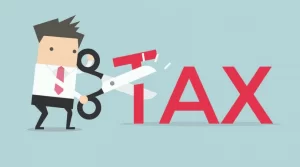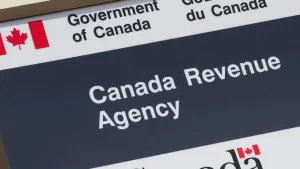If you’re an international medical graduate starting a post in Canada, you’ve got a lot to organize. Besides all the usual tasks associated with starting a job, you’ll need to get your finances set up in a different country. Credit Score for international medical graduates
If you’re hoping to secure housing, take out a personal loan or simply get a credit card, you’ll need to establish and build a credit score. As a recent medical school graduate, you likely have some debt — but Canadian credit bureaus don’t import information from international sources. So unless you have an existing credit history in Canada, you’ll be starting at square one. Below are some practical tips on how to build a credit score in Canada.
Take stock of your finances
The very first step towards building your credit score is to do some basic financial planning. This will help you make a realistic budget and foster healthy financial habits — such as making payments on time — which will demonstrate to credit bureaus that you’re a fiscally responsible individual.
Start by writing down your income, expenses, debt, savings and investments and financial goals. The idea is to get an accounting of your financial picture so you know exactly how much you can spend, how much you will owe each month and what is within your financial grasp.
Pay your bills on time
Did you know that credit bureaus track your bill payment history? This means that you can start establishing a good credit score simply by paying your bills — like your internet or mobile phone bill — on time.
Once you open other accounts, like credit cards, loans or a mortgage, every on-time payment will contribute to boosting your score. It’s best to make your payments in full, but if you can’t, make sure you pay the minimum amount by the due date, every single time.
Negative information like missed payments, accounts sent to collections and bankruptcy can stay in your credit report for six years or longer. If you’re prone to missing deadlines, consider setting up automatic minimum or full-balance payments through your bank.
Apply for a credit card (and use it responsibly)
As we’ve seen, credit cards don’t just make life easier — they can help you build your credit history. Every time you make a payment on time, even if it’s only for the minimum amount, you demonstrate financial responsibility and boost your reputation with the credit bureaus.
As someone without a local credit history, you might not be eligible for the full range of credit cards on the market. Don’t be discouraged: a secured credit card, where you pre-deposit money as collateral, is easy to get and is a good place to start. Also, look for initiatives designed specifically for newcomers, like the Scotiabank StartRight program, which can help you get a credit card and offers other services as well.
Only apply for credit you need
When you apply for credit — say, a loan or a credit card — there is often what’s called a hard credit check, where a lender requests to see your credit report. That request can result in a small, temporary lowering of your score because your application signals that you are seeking credit. If you make numerous applications concurrently (like signing up for 10 credit cards at once) it’s a red flag for credit bureaus and can significantly reduce your score.
Credit bureaus also look at what types of credit you have (such as credit cards, loans and mortgages) and having more than one type can increase your score.
Don’t overthink all this. Your best strategy is to fully research your options before you apply for credit so you’re not signalling that you have a problem with debt. If you choose to apply for more than one type of credit, try to stagger the applications or seek out situations where you can apply for multiple products under one credit check. A discussion with your bank can get you started.
Get a personal line of credit
If you occasionally need access to extra cash, avoid using the cash advance feature on your credit card. The interest rates are typically very high and interest will compound quickly, making it more difficult to pay off. Consider instead a personal line of credit that offers repayment flexibility and lower interest rates. As always, be sure to make your payments on time every month, even if it’s only the minimum required.
Be aware of your credit utilization ratio
Once you’ve got credit, the next thing to monitor is your credit utilization ratio — the amount of debt you’re carrying compared with your available credit. So, for example, if you have a credit card with a limit of $10,000 and you owe a $1,000 balance, your credit limit utilization ratio is 10%. (If you have multiple credit accounts, you have just one overall ratio.) While most people carry some debt on occasion, it’s important not to let it balloon out of control. Aim to keep your credit utilization ratio below 30%.
Know your credit score (and track it!)
With every passing month, your financial habits contribute to your credit report, and in about six months, you’ll have established a credit score with the credit bureaus. It’s a good idea to stay informed of your credit score, particularly if you’re planning to make a large purchase or apply for a loan or a mortgage, as it may help you negotiate better rates or terms.
You can get your credit score directly from the credit bureaus, Equifax Canada and TransUnion Canada, or by using a third-party service. Both bureaus will provide your full credit report for free, and doing so has no effect on your score. If you use another service, make sure you choose one that does not result in a hard credit check that can hurt your credit score. Some financial institutions, like Scotiabank, allow you to look up your credit score at any time through their online banking service or mobile banking app.
The last word
Building a credit score takes a bit of time, but with a solid plan and good money habits, you can expect to have a Canadian credit score within your first year of arrival.
Talk to Abdullah CPA






